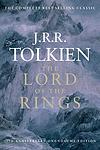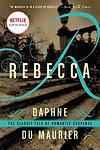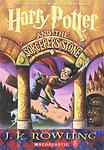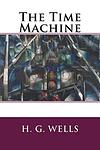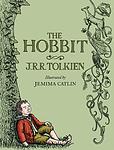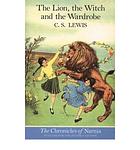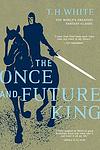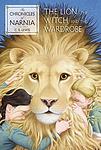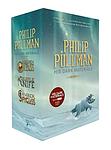The Greatest British "Speculative Fiction" Books of All Time
Click to learn how this list is calculated.
This list represents a comprehensive and trusted collection of the greatest books. Developed through a specialized algorithm, it brings together 284 'best of' book lists to form a definitive guide to the world's most acclaimed books. For those interested in how these books are chosen, additional details can be found on the rankings page.
Genres
Speculative fiction is an umbrella genre encompassing narrative fiction with supernatural or futuristic elements. This includes genres such as science fiction, fantasy, horror, supernatural fiction, superhero fiction, utopian and dystopian fiction, apocalyptic and post-apocalyptic fiction, and alternate history. The unifying factor of speculative fiction is its departure from the narrative constraints of reality, exploring imaginative and often profound questions that challenge our understanding of the world and our place within it. These stories often delve into themes like the human condition, social commentary, and the exploration of philosophical and ethical dilemmas through the lens of the fantastical or the yet-to-be-possible. By pushing the boundaries of the known, speculative fiction invites readers to consider the myriad possibilities of existence and the potential consequences of our actions in worlds that are, at once, vastly different from and eerily similar to our own.
Countries
Date Range
Reading Statistics
Click the button below to see how many of these books you've read!
Download
If you're interested in downloading this list as a CSV file for use in a spreadsheet application, you can easily do so by clicking the button below. Please note that to ensure a manageable file size and faster download, the CSV will include details for only the first 500 books.
Download-
1. Nineteen Eighty Four by George Orwell
Set in a dystopian future, the novel presents a society under the total control of a totalitarian regime, led by the omnipresent Big Brother. The protagonist, a low-ranking member of 'the Party', begins to question the regime and falls in love with a woman, an act of rebellion in a world where independent thought, dissent, and love are prohibited. The novel explores themes of surveillance, censorship, and the manipulation of truth.
-
2. The Lord of the Rings by J. R. R. Tolkien
This epic high-fantasy novel centers around a modest hobbit who is entrusted with the task of destroying a powerful ring that could enable the dark lord to conquer the world. Accompanied by a diverse group of companions, the hobbit embarks on a perilous journey across Middle-earth, battling evil forces and facing numerous challenges. The narrative, rich in mythology and complex themes of good versus evil, friendship, and heroism, has had a profound influence on the fantasy genre.
-
3. Alice's Adventures in Wonderland by Lewis Carroll
This novel follows the story of a young girl named Alice who falls down a rabbit hole into a fantastical world full of peculiar creatures and bizarre experiences. As she navigates through this strange land, she encounters a series of nonsensical events, including a tea party with a Mad Hatter, a pool of tears, and a trial over stolen tarts. The book is renowned for its playful use of language, logic, and its exploration of the boundaries of reality.
-
4. Heart of Darkness by Joseph Conrad
This classic novel follows the journey of a seaman who travels up the Congo River into the African interior to meet a mysterious ivory trader. Throughout his journey, he encounters the harsh realities of imperialism, the brutal treatment of native Africans, and the depths of human cruelty and madness. The protagonist's journey into the 'heart of darkness' serves as both a physical exploration of the African continent and a metaphorical exploration into the depths of human nature.
-
5. Frankenstein by Mary Shelley
This classic novel tells the story of a young scientist who creates a grotesque but sentient creature in an unorthodox scientific experiment. The scientist, horrified by his creation, abandons it, leading the creature to seek revenge. The novel explores themes of ambition, responsibility, guilt, and the potential consequences of playing God.
-
6. Brave New World by Aldous Huxley
Set in a dystopian future, the novel explores a society where human beings are genetically bred and pharmaceutically conditioned to serve in a ruling order. The society is divided into five castes, each with its specific roles. The narrative follows a savage who rejects the norms of this new world order and struggles to navigate the clash between the values of his upbringing and the reality of this technologically advanced, emotionless society. His resistance prompts a deep examination of the nature of freedom, individuality, and happiness.
-
7. Lord of the Flies by William Golding
A group of British boys are stranded on an uninhabited island after their plane crashes during wartime. Initially, they attempt to establish order, creating rules and electing a leader. However, as time passes, their civility erodes, and they descend into savagery and chaos. The struggle for power intensifies, leading to violence and death. The novel explores themes of innocence, the inherent evil in mankind, and the thin veneer of civilization.
-
8. Rebecca by Daphne du Maurier
A young woman marries a wealthy widower and moves into his large English country house. She quickly realizes that the memory of her husband's first wife, Rebecca, haunts every corner of the estate. The housekeeper's obsessive devotion to Rebecca and the mysterious circumstances of her death continue to overshadow the second wife's attempts to make a happy life with her husband. As secrets about Rebecca's life and death are revealed, the new wife must grapple with her own identity and place within the household.
-
9. Animal Farm by George Orwell
"Animal Farm" is a satirical fable set on a farm where the animals revolt, overthrow their human farmer, and take over the running of the farm for themselves. The story is an allegory of the Russian Revolution and the rise of Stalin, and the tale is told by the animals that inhabit the farm, primarily pigs who become the ruling class. Despite their initial attempts at creating an equal society, corruption and power ultimately lead to a regime as oppressive as the one they overthrew.
-
10. The Hitchhiker's Guide to the Galaxy by Douglas Adams
This comedic science fiction novel follows the intergalactic adventures of an unwitting human, Arthur Dent, who is rescued just before Earth's destruction by his friend Ford Prefect, a researcher for a galactic travel guide. Together, they hitch a ride on a stolen spaceship, encountering a range of bizarre characters, including a depressed robot and a two-headed ex-president of the galaxy. Through a series of satirical and absurd escapades, the book explores themes of existentialism, bureaucracy, and the absurdity of life, all while poking fun at the science fiction genre and offering witty commentary on the human condition.
-
11. Dracula by Bram Stoker
This classic horror novel tells the story of Count Dracula's attempt to move from Transylvania to England so that he may find new blood and spread the undead curse, and of the battle between Dracula and a small group of people led by Professor Abraham Van Helsing. The narrative is composed of journal entries, letters, and telegrams written by the novel's protagonists, providing different perspectives on the gruesome events unfolding. The book touches on themes of sexuality, gender roles, and the clash of modern science with traditional superstition.
-
12. A Clockwork Orange by Anthony Burgess
This novel follows the life of a violent young man named Alex, who is part of a youth subculture in a dystopian future England. Alex and his gang engage in a nightmarish spree of rape, assault, and robbery, until he is arrested and subjected to a psychological experiment by the government to "cure" him of his violent tendencies. The novel explores themes of free will, morality, and the nature of evil, while using a unique slang language invented by the author.
-
13. Harry Potter And The Philosopher's Stone by J. K Rowling
The story follows a young boy, Harry Potter, who learns on his 11th birthday that he is the orphaned son of two powerful wizards and possesses unique magical powers of his own. He is summoned from his life as an unwanted child to become a student at Hogwarts, an English boarding school for wizards. There, he meets several friends who become his closest allies and help him discover the truth about his parents' mysterious deaths, the dark wizard who wants to kill him, and the magical stone that holds immense power.
-
14. The Time Machine by H. G. Wells
A Victorian-era scientist invents a machine that allows him to travel through time. He first journeys to the year 802,701 A.D., where he encounters the Eloi, a society of small, elegant, childlike adults who live in harmony but lack curiosity and drive. He later discovers the Morlocks, a nocturnal, subterranean species who prey on the Eloi. After rescuing an Eloi named Weena, the protagonist loses his time machine and must devise a plan to recover it and return to his own time, all while exploring the social and evolutionary implications of the two distinct societies.
-
15. Watership Down by Richard Adams
This novel follows a group of rabbits as they flee their warren due to a foreseen catastrophe. The rabbits, led by Hazel and his psychic brother Fiver, face numerous challenges and adventures as they search for a new home. They encounter predators, hostile rabbit communities, and human threats. The book explores themes of leadership, survival, and freedom, all set within the natural world and its inherent dangers.
-
16. The Hobbit by J. R. R. Tolkien
In this fantasy novel, a timid and unadventurous hobbit named Bilbo Baggins is whisked away on a grand adventure by a wizard and a group of dwarves. Their mission is to reclaim the dwarves' homeland and treasure from a fearsome dragon. Throughout the journey, Bilbo grows in courage and cunning, proving himself a true hero as he encounters trolls, goblins, giant spiders, and other perils. The novel culminates with a great battle involving various races of Middle Earth, after which Bilbo returns home, forever changed by his experiences.
-
17. War of the Worlds by H. G. Wells
This classic science fiction novel tells the story of a Martian invasion of Earth, as experienced by an unnamed protagonist and his brother. The Martians, who are technologically far superior to humans, cause widespread devastation with their heat-ray weapons and towering tripods. Despite humanity's best efforts to resist, they seem unstoppable. The novel is a commentary on British imperialism and explores themes of human survival and evolution.
-
18. Macbeth by William Shakespeare
This classic play follows the tragic tale of Macbeth, a Scottish general whose ambition is sparked by a prophecy from three witches that he will one day become King of Scotland. Consumed by ambition and spurred on by his wife, Macbeth murders King Duncan and takes the throne. However, guilt and paranoia plague him, leading to a reign of terror and further bloodshed. His desperate attempts to cling onto power lead to his downfall, illustrating the destructive power of unchecked ambition.
-
19. The Lion, The Witch and the Wardrobe by C. S. Lewis
Four siblings are evacuated from London during World War II and sent to live with an old professor in the countryside. In his house, they discover a magical wardrobe that serves as a portal to the land of Narnia, a world filled with mythical creatures and ruled by an evil White Witch. The children are soon caught up in a struggle to free Narnia from the witch's eternal winter, aided by the majestic lion Aslan. The story combines elements of fantasy, adventure, and Christian allegory.
-
20. The Strange Case of Dr. Jekyll and Mr. Hyde by Robert Louis Stevenson
This classic novel explores the duality of human nature through the story of a respected London doctor who creates a potion that transforms him into a sinister, violent alter ego. As the doctor increasingly loses control over when the transformations occur, his alter ego's evil deeds escalate, causing havoc in the community. The narrative is a chilling exploration of humanity's capacity for evil and the struggle for individuals to reconcile their public personas with their private desires.
-
21. The Once and Future King by T. H. White
This novel is a retelling of the Arthurian legend, from Arthur's childhood tutelage under the wizard Merlyn to his eventual death. The story follows Arthur's journey from a naive boy to a wise and just king, his establishment of the Round Table, his marriage to Guinevere, and his complex relationship with his illegitimate son, Mordred. The narrative explores themes of power, justice, war, and human nature, offering a nuanced and humanizing portrayal of a well-known mythical figure.
-
22. The Chronicles of Narnia by C. S. Lewis
This seven-part series follows the adventures of various children who play central roles in the unfolding history of the fantastical realm of Narnia. The children are magically transported to Narnia from our world, where they aid the noble lion Aslan in his struggles against evil forces in order to restore peace and justice. The series explores themes of good versus evil, the nature of faith, and the power of sacrifice, all set against a richly imagined magical world full of diverse creatures and landscapes.
-
23. His Dark Materials by Philip Pullman
"His Dark Materials" is a fantasy trilogy that follows the journey of a young girl named Lyra Belacqua and her daemon, Pantalaimon, across parallel universes. Throughout their adventures, they encounter a variety of mythical creatures, confront religious and political systems, and grapple with complex themes such as free will, original sin, and the nature of consciousness. The series also delves into the mysteries of Dust, a strange particle integral to the multiverse's function.
-
24. 2001: A Space Odyssey by Arthur C. Clarke
This science fiction novel follows a voyage to Jupiter with the sentient computer HAL after the discovery of a mysterious black monolith affecting human evolution. Dealing with themes of existentialism, human evolution, technology, artificial intelligence and extraterrestrial life, it is a journey of discovery that takes a dangerous turn when the onboard computer begins to malfunction. The story is a complex mix of science, philosophy, and conjecture.
-
25. Nights At The Circus by Angela Carter
"Nights at the Circus" is a fantastical tale set in the late 19th century, centering around a trapeze artist who claims to be a swan princess with wings. A journalist is intrigued by her story and joins the circus to uncover the truth. As the troupe travels from London to Siberia, the journalist becomes increasingly enchanted by the strange world of circus performers and his relationship with the trapeze artist deepens. The book explores themes of love, freedom, and the blurred lines between reality and illusion.
Reading Statistics
Click the button below to see how many of these books you've read!
Download
If you're interested in downloading this list as a CSV file for use in a spreadsheet application, you can easily do so by clicking the button below. Please note that to ensure a manageable file size and faster download, the CSV will include details for only the first 500 books.
Download
